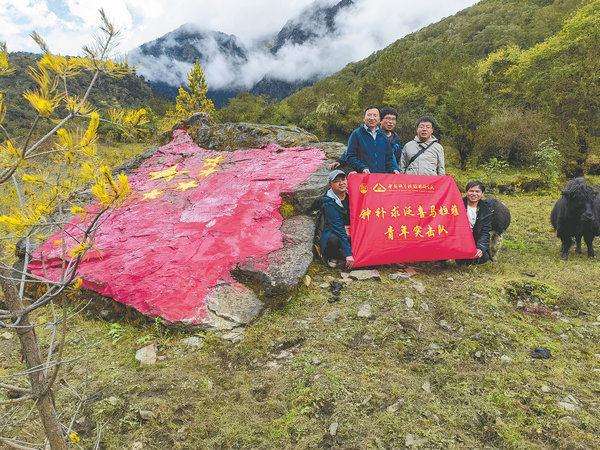

In 2008, Wang was interrupted by a thunderous roar when he was pressing plant specimens at a makeshift tent against a cliff in Muli Tibetan autonomous county, Liangshan Yi autonomous prefecture, Sichuan province.
"It was from a boulder with a diameter of over 1 meter rolling down the cliff, which narrowly missed the tent," Wang recalls.
In the following expeditions in the Xizang autonomous region, Wang often came across blizzards, rendering the mountain roads all the more slippery and difficult to drive on.
"A few times, the brake system failed to work, sending us on the verge of falling off the cliff," he says.
Worse still, years of working on the plateau have taxed Wang's body. He has suffered from sleep disorders and has to use a machine to aid his breathing.
Yet, fascination with plants and the commitment of his teacher, Hong Deyuan, to the field have kept him going.
"He ascended a snowy Himalayan mountain that is 5,000 meters above sea level at 80 years old in 2017 and he is still coming to the institute for work," Wang says.
Wang says he feels obliged to carry on Hong's spirit.